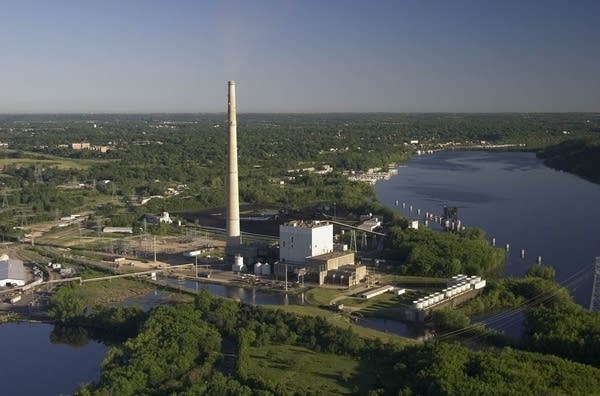Groups hope to elevate climate change as campaign issue
Go Deeper.
Create an account or log in to save stories.
Like this?
Thanks for liking this story! We have added it to a list of your favorite stories.

About 50 leaders from around the country have been meeting since April to try to define a policy on global warming they could all agree on.
Michael Noble, from the Minnesota group Fresh Energy, says the participants are coming at it from a lot of different viewpoints.

"We see religious groups, we see labor groups, we see social justice groups, progressive businesses, investors, entrepreneurs," Noble says. "All different stripes of people are recognizing that we need a really thorough-going energy revolution."
Congress is already considering several bills, and some states, including Minnesota, have set goals to cut down on greenhouse gases. But Noble says it's too easy for politicians to be squishy on climate change.
Turn Up Your Support
MPR News helps you turn down the noise and build shared understanding. Turn up your support for this public resource and keep trusted journalism accessible to all.
"The worst thing that can happen now is -- everyone is agreed, global warming is a serious problem, and the politicians' response is, 'Hey, look busy. We're doing something, we're doing something,'" Noble says. "You need to have a clarity as to what constitutes real action."
And this is what the group calls real action: They're drawing a "bright line" on three key ways to address global warming.
"When you start getting into re-engineering a major part of our economy that's going to have big impact on voters, that's when politicians get worried."
They want political leaders to promise to reduce carbon dioxide emissions by 80 percent by the year 2050, starting right away. They want to create five million new jobs in alternative energy and conservation technologies. And they want to ban any new coal-fired power plants until someone figures out how to capture the carbon they produce.
All of Minnesota's leading candidates for U.S. Senate say they agree in theory with the goals of 1 Sky. The only one willing to sign on to it point-by-point is DFLer Jack Nelson-Pallmeyer. He says the urgency of the 1 Sky appeal matches the urgency of the global warming problem.
A spokesman for DFLer Al Franken's campaign says Franken is open to various approaches. He really likes the green jobs idea, but he wouldn't commit to the ban on new coal-fired power plants. He says we should develop technology to capture the greenhouse gas emissions.
DFLer Mike Cerisi also won't support a ban on new coal plants; he says it depends on conditions in each region of the country.
Incumbent Republican Sen. Norm Coleman issued a statement saying he wants to reduce greenhouse gases without losing jobs, and he's co-sponsoring of one of the bills in Congress, the Warner-Lieberman bill, which would cut emissions 70 percent by 2050.

DFL Candidate Jim Cohen couldn't be reached for comment.
Of course, politicians are under pressure from lots of different groups with different agendas.
Larry Jacobs, who directs the Center for the Study of Politics and Governance at the University of Minnesota, says voters and politicians will find the ideas behind 1 Sky appealing, but he says getting a commitment on the specific priorities will be a challenge.
"When you start getting into re-engineering a major part of our economy that's going to have big-time impact on voters, that's when politicians get worried," Jacobs says. "Because it becomes the ammunition for attack ads, that can point out the dangers, the risks at stake, and the ways in which voters can be hurt."
He says voters will feel pain in the short term, but in the long term, Minnesota is likely to come out a winner in the transformation to a clean-energy world.
One Sky activists promise the candidates will be hearing from them a lot more in the coming year.
Dear reader,
Political debates with family or friends can get heated. But what if there was a way to handle them better?
You can learn how to have civil political conversations with our new e-book!
Download our free e-book, Talking Sense: Have Hard Political Conversations, Better, and learn how to talk without the tension.





